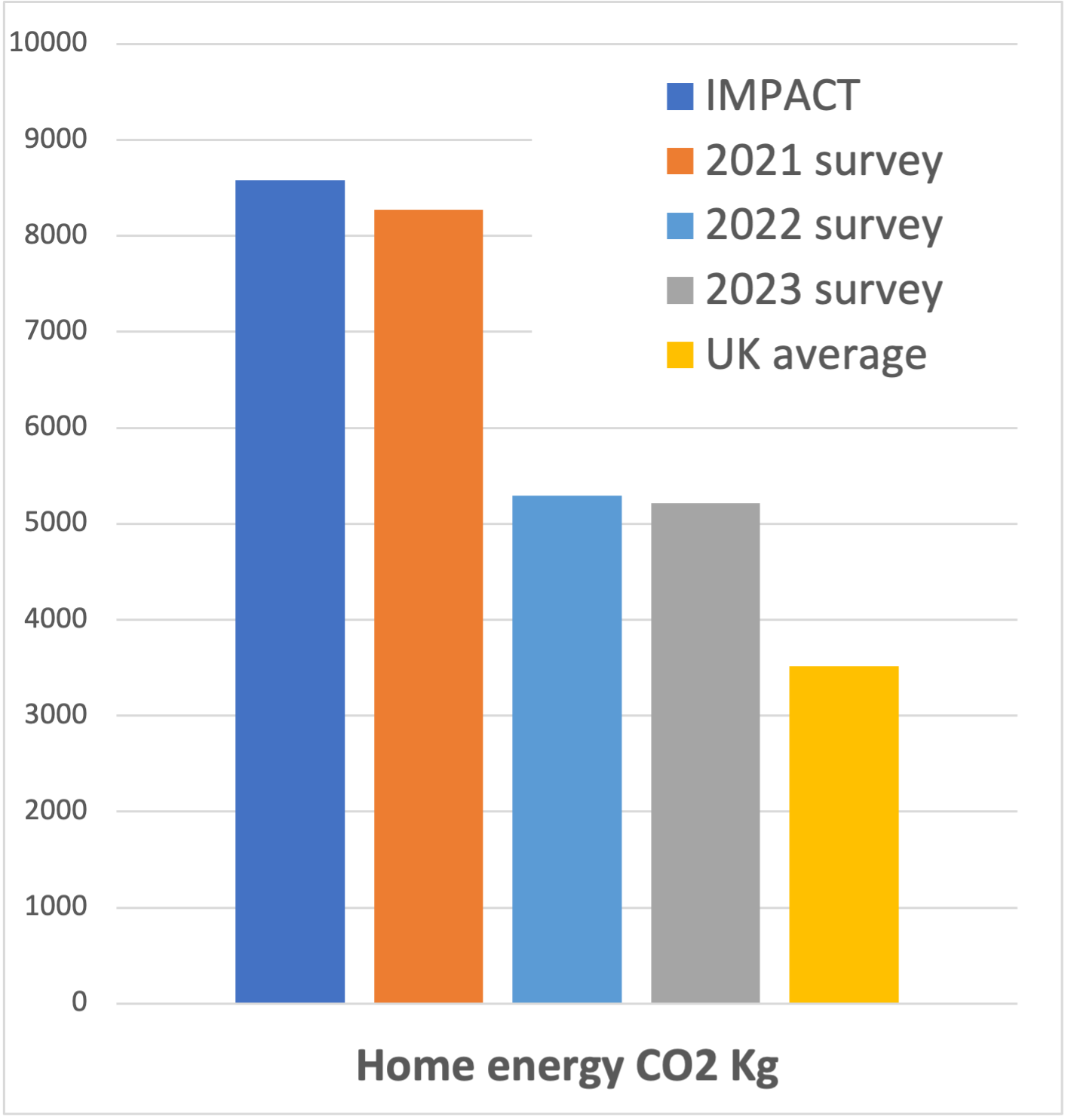This page summarises the input we have received from our community on their 2023 CO2 emissions from home energy consumption.
The purpose of the annual CO2 assessment is so that we can track our improvements over the long term towards reducing our CO2 emissions from home energy by 50% by 2030 and to zero by 2050.
- Here are the links to our previous annual assesments:
- To help with planning for actions to reduce CO2 emissions from Home Energy emissions we have a ‘Home Energy Action‘ page.
- Please click this link if you would like to provide or update your annual CO2 Self Assessment
Summary
The average CO2 emissions reported for 2023 by 14 homes was 5,211 Kg per household.

This can be compared to:
- The IMPACT Community Carbon calculator tool assessment for the Beech Parish of 8,580 Kg
- The baseline self assessment in 2021 by 54 of the 238 households in Beech of 8,274 Kg (-37% over the 2 years))
- The 2022 self assessment by 22 household in Beech of 5,296 Kg (-1% year to year)
- The UK average of 3,502 Kg per household (+150%)
Notes on signifcance of year to year comparison
We need to be careful with year to year comparisons as:
- The numbers are small. There are approximately 238 households in Beech, of which 54 completed the 2021 survey, 22 the 2022 survey and 14 the 2023 survey.
- The reporting is not consistent year to year, for example a household may only provide one, two or three of the annual data points.
The value in the annual assessment is :
- Increased awareness of the individual impact of home energy consumption on CO2 emissions
- The ability to calculate and track the impact of individual and utility supplier / government changes.
- Sharing experience and best practice
Summary of changes and impact
The reduction in CO2 emissions has been achieved over the 2 years by:
- No or low cost changes such as turning down the thermostat, improving draught proofing and thermal curtains.
- On average these changes yielded a saving of 20-30%
- Switching fuel source from gas/oil to log burning
- Major changes in the use of ‘Agas’
- Switching them off
- Changing the fuel supply from oil to gas or electricity
- Investments in solar panels, batteries and/or new heating technology
- On average these changes yielded a saving of 30-70%
The number of households completing the annual assessment has declined from 54 (23%) to 14 (6%):
- Several Parishioners have commented that they have made all the changes that are economically viable and do not see significant opportunity for year to year change.
- For other households completing home energy CO2 emission assessments are not a priority.
Conclusions
- We are still getting positive feedback on the value of this programme so will ‘persist’!
- We could make the CO2 calculation easier.
- We could do more to highlight the emerging changes in energy generation, tariffs and green technology’s, and their potential impact on CO2:
- The availability and usage of energy tariffs that work with batteries and EV’s.
- For example the Octopus overnight tariffs.
- The availability of high temperature heat pumps
- High temperature heat pumps can reduce the requirement to change radiators and usage patterns typically associated with heat pumps.
- Note this is a link to The Times and a subscription may be required
- The increasing share of renewables in UK electricity generation means that a households CO2 emissions will reduce year to year for the same Kwh usage.
- The emerging area of EV bidirectional charging.
- The availability and usage of energy tariffs that work with batteries and EV’s.